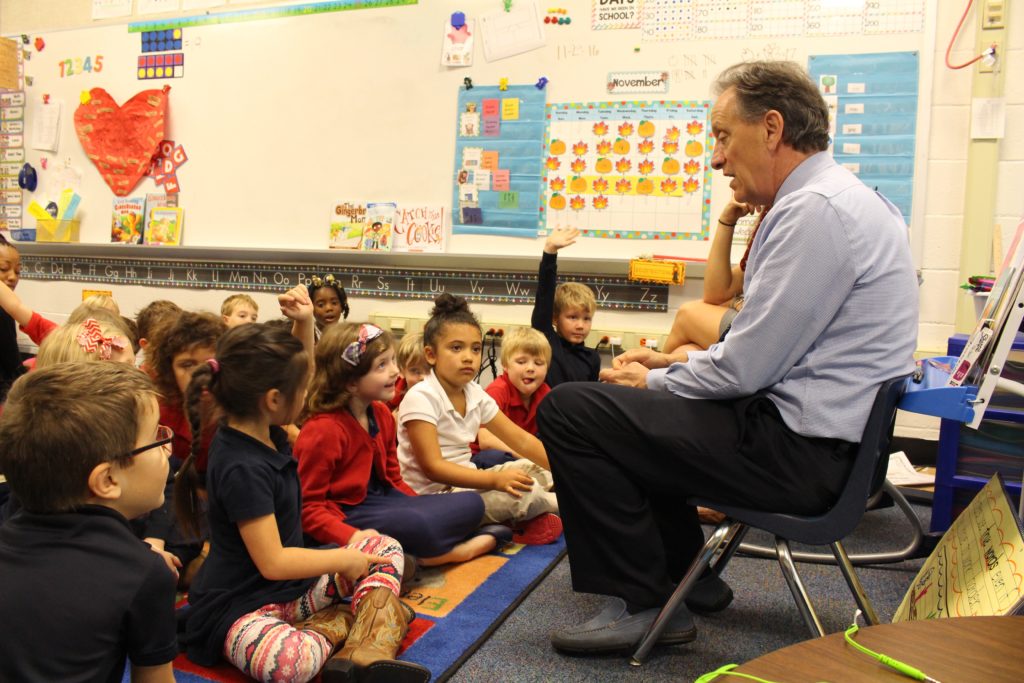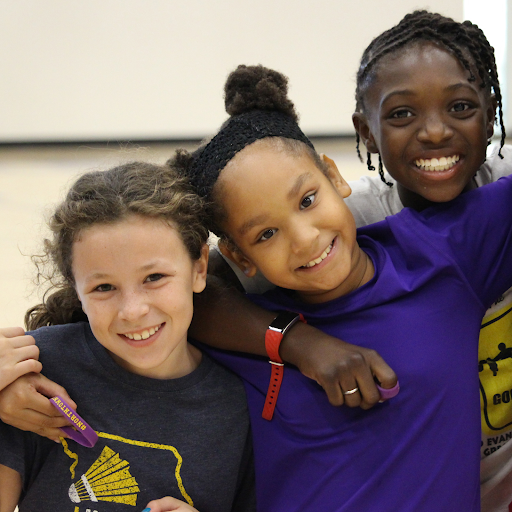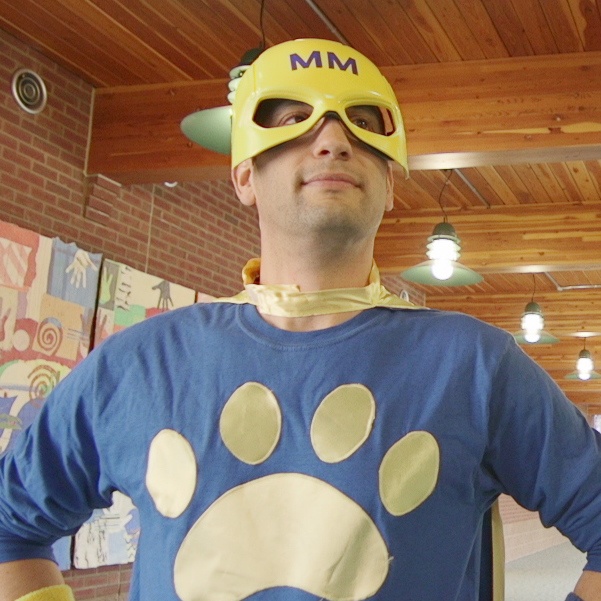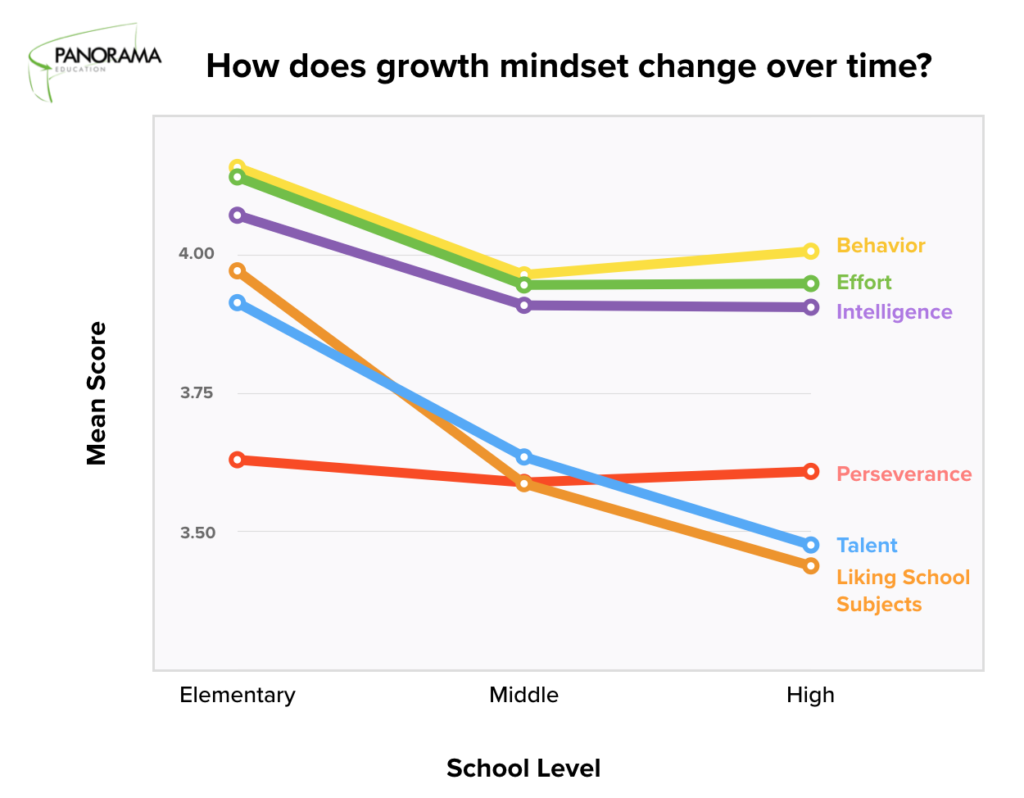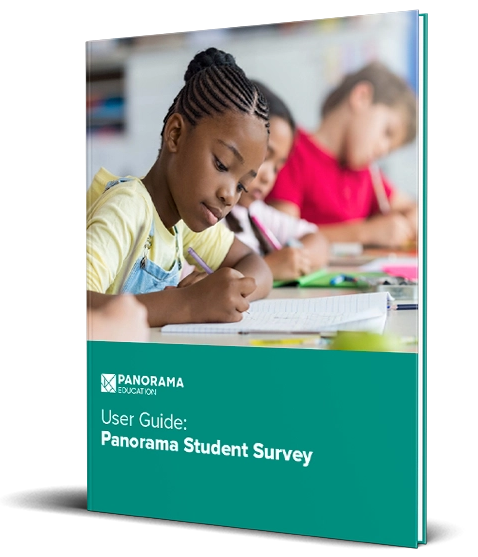At Carolina Voyager Charter School, a K-4 school in Charleston, South Carolina, grit was the theme of the month in October. Even after October, students at Carolina Voyager are still excited to talk about grit. We asked students what focusing on grit means for them, for their peers, and their school. One fourth-grade student shared, “To me, grit means never give up, never be distracted from your goals, and stay focused.”
Students at Carolina Voyager hail from across Charleston County and come from a broad spectrum of socio-economic backgrounds. Half are students of color, and half are white. School leader Dr. Harry Walker, school counselor Kristina Lindgren, and their colleagues focus on serving all students and making Carolina Voyager a place where every student feels he or she belongs and can learn. In an effort to develop their student body into a tight-knit community focused on student achievement, Dr. Walker and Ms. Lindgren put life skills at the center of the school.
In the audio clip, Carolina Voyager students read the questions about grit aloud. By answering the survey questions, students help school administrators and their teachers better understand life skills at their school and better support individual students. For third through fifth grade students, the grit scale includes four questions (grades six through twelve have a similar set of questions geared to more mature developmental processing and reading capacities). Response options are offered in words that reflect the underlying concept. For example, the response options for the first question range from “almost never” to “almost always.”
Sample Grit Questions:
- How often do you stay focused on the same goal for more than 3 months at a time?
- If you fail to reach an important goal, how likely are you to try again?
- When you are working on a project that matters a lot to you, how focused can you stay when there are lots of distractions?
- If you have a problem while working towards an important goal, how well can you keep working?
Bringing Grit to Carolina Voyager Charter School
How did students become conversant and confident in talking about grit and what it means to them? Each month the whole school focuses on a life skills theme, and each class has dedicated time on Fridays to talk about the theme. During this time, Ms. Lindgren introduces and explores the topic with students by leading discussions with students, doing short writing exercises, making representative art, or sharing short videos.
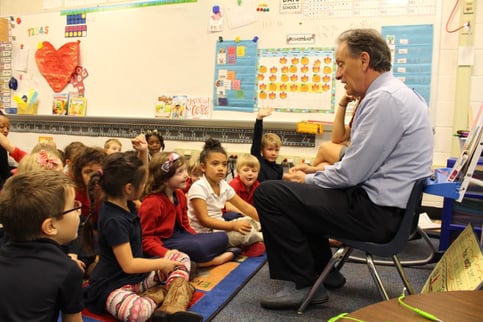 Dr. Harry Walker talks with kindergarten students about grit.
Dr. Harry Walker talks with kindergarten students about grit.
In addition to dedicated Friday time about life skill competencies, teachers at Carolina Voyager address the focus topic throughout the week. Ms. Lindgren provides ideas for how to bring the theme into the classroom in the staff newsletter, which also serves as a gentle reminder to consistently reinforce the theme. The “Garden of Greatness” bulletin board at the school entrance celebrates students who have shown or exemplified the competency of the month.
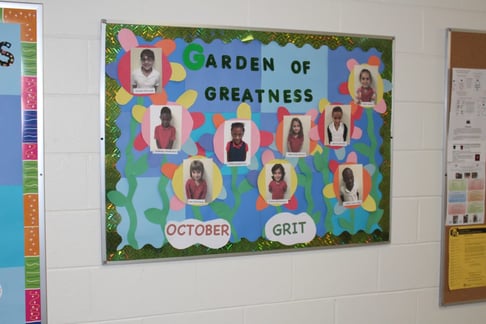 The Garden of Greatness greets students, staff, and visitors at the entrance to Carolina Voyager.
The Garden of Greatness greets students, staff, and visitors at the entrance to Carolina Voyager.
When Dr. Walker and Ms. Lindgren reflect on what it’s meant to Carolina Voyager to focus on life skills and to introduce new concepts to young students, they say they’re all still learning and figuring out what works for their students. They use data they collect to help them understand their strengths and areas for growth as a whole school and to identify individual students who need more support in specific areas.
The goal is for life skills to be integrated into everything that happens at school. “This isn’t one hour of the day. It needs to be incorporated into the whole year,” said Dr. Walker.
Students at Carolina Voyager studied grit, explored it with classmates, and reflected on how well they are able to persevere through setbacks to achieve important long-term goals. But what does it really mean to them in their lives? When the question is posed to students, they talk about never giving up, confidence, and a school environment where peers and adults cheer each other on. For the adults at Carolina Voyager, that’s exciting to hear!
“To me, grit means never give up. Never be distracted from your goals. Stay focused. If you always want that goal to happen, stay focused on that goal. And never give up. If you don’t think you can do it, try to have grit. Think of all the other times you accomplished a goal and try to think the same about that goal and you can always accomplish your goal. Never give up.”
—Student at Carolina Voyager Charter School



